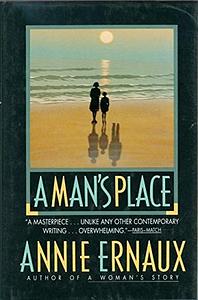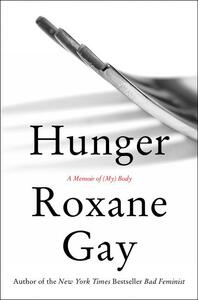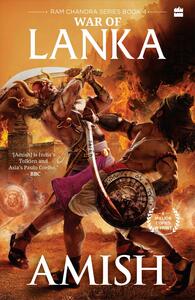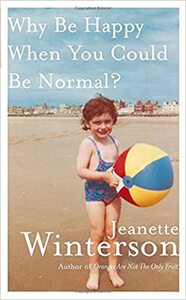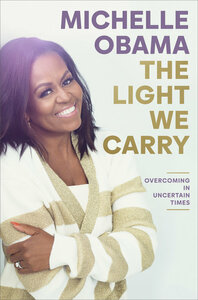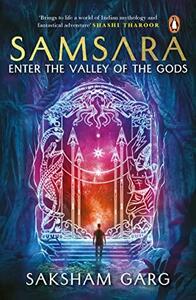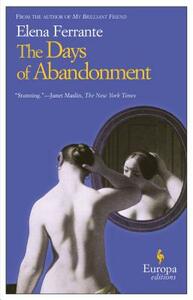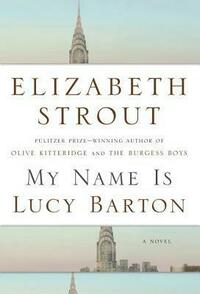You need to sign in or sign up before continuing.
Take a photo of a barcode or cover
_askthebookbug's Reviews (1.34k)
TW - Rape, bulimia, anorexia, fat phobia.
I read this memoir in bits and pieces because the weight of it was too much to carry at once. After I finished reading, I smoothened the last page and tried to imagine the kind of courage that must have taken Roxane Gay to write this book. The enormity of her past, the one that she sewed on to her body for years must have felt like a burning scar. Most of us have struggled with our bodies, finding ways to punish it for the traumas of our past. Hunger too is one such memoir, of the body.
Roxane Gay’s memoir starts off with her sitting in a hospital with her considering Gastric Bypass surgery. She describes her body, the way she sees it and how others judge it. She carries her weight with the shame that comes with taking up large spaces. But as we slowly dive into the depths of the book, she reveals a haunting incident that occurred when she was a teenager that forever changed her world. It’s not easy to sit and read about a young girl being violated and abused by men. What happened then left a lasting impact on Roxane and she turned her attention to food. She didn’t enjoy what she ate but merely did so because she wanted to protect her body from the eyes of predators. She wanted to grow and expand, become untouchable so that she could always feel safe.
This wasn’t hunger for food but hunger to eat the pain.
Hunger is one of its kind memoir. It’s all gory, truth that feels like acid, anger that threatens to erupt like a volcano and pain that is on the verge of exploding like a dam.
Writing too much about it would be giving the entire book away so I’ll stop. But if you’re planning to read one more nonfiction before the year ends, please read this one.
Highly recommended.
I read this memoir in bits and pieces because the weight of it was too much to carry at once. After I finished reading, I smoothened the last page and tried to imagine the kind of courage that must have taken Roxane Gay to write this book. The enormity of her past, the one that she sewed on to her body for years must have felt like a burning scar. Most of us have struggled with our bodies, finding ways to punish it for the traumas of our past. Hunger too is one such memoir, of the body.
Roxane Gay’s memoir starts off with her sitting in a hospital with her considering Gastric Bypass surgery. She describes her body, the way she sees it and how others judge it. She carries her weight with the shame that comes with taking up large spaces. But as we slowly dive into the depths of the book, she reveals a haunting incident that occurred when she was a teenager that forever changed her world. It’s not easy to sit and read about a young girl being violated and abused by men. What happened then left a lasting impact on Roxane and she turned her attention to food. She didn’t enjoy what she ate but merely did so because she wanted to protect her body from the eyes of predators. She wanted to grow and expand, become untouchable so that she could always feel safe.
This wasn’t hunger for food but hunger to eat the pain.
Hunger is one of its kind memoir. It’s all gory, truth that feels like acid, anger that threatens to erupt like a volcano and pain that is on the verge of exploding like a dam.
Writing too much about it would be giving the entire book away so I’ll stop. But if you’re planning to read one more nonfiction before the year ends, please read this one.
Highly recommended.
Mythology is a tricky genre to nail. To take an already familiar story and add a new spin to it, all the while trying to keep the essence of the story intact requires great skill. My introduction to mythology novel was through Amish’s Shiva trilogy. I devoured them back in college, his words conjuring up images of Shiva and Sati so vividly that it felt like I was watching a movie. The thing with venturing into mythology genre is that there is absolutely no scope for the author to let their guard down. The benchmark they set becomes so high that only they can shatter it. Unfortunately, it is in this regard that War of Lanka has failed terribly.
The biggest flaw of this book was its writing. It seemed amateurish, with all signs of his previous work nowhere in sight. The characters lacked depth with even Raavan being portrayed as a slightly dim man. As I read, I kept waiting for Amish to redeem this story at some point but to my utter dismay, it never happened. The novel was hurried with little to no attention to detail, no strong storyline and terrible sentence formations. Compared to the Shiva trilogy, this book has quite a lot of loopholes. It was such a shame to see powerful characters like Sita and Ravana himself being reduced to half of their original potential.
Although the previous books were decent, this was a miss. Perhaps he wasn’t ready to bring this story to life yet. Editing most certainly needs polishing and I personally felt that this was a completely rushed attempt at publishing a novel that needed more work to be done on it.
I do hope that his next book is well researched and executed.
The biggest flaw of this book was its writing. It seemed amateurish, with all signs of his previous work nowhere in sight. The characters lacked depth with even Raavan being portrayed as a slightly dim man. As I read, I kept waiting for Amish to redeem this story at some point but to my utter dismay, it never happened. The novel was hurried with little to no attention to detail, no strong storyline and terrible sentence formations. Compared to the Shiva trilogy, this book has quite a lot of loopholes. It was such a shame to see powerful characters like Sita and Ravana himself being reduced to half of their original potential.
Although the previous books were decent, this was a miss. Perhaps he wasn’t ready to bring this story to life yet. Editing most certainly needs polishing and I personally felt that this was a completely rushed attempt at publishing a novel that needed more work to be done on it.
I do hope that his next book is well researched and executed.
I haven’t read Becoming and in hindsight, I do think it’s a good thing because I have nothing to compare The Light We Carry to. It’s undeniable that Michelle Obama has a knack of writing incredibly well. Her words carry a sense of power and underlying calmness that puts her readers at ease.
Michelle covers an array of topics via chapters and as expected, my favourite of all turned out to be the one about her relationship with Barrack Obama. She also speaks of her father who struggled with disability and yet lived with quiet dignity and warmth. And of her mother who raised two wonderful children to be independent from a very young age. Michelle is clearly a no-nonsense person, one who speaks her mind honestly and this paragraph from her book proves her capability of being a stellar First Lady - “It shook me profoundly to hear the man who'd replace my husband as president openly and unapologetically using ethnic slurs, making selfishness and hate somehow acceptable."
From having faced many difficulties to overcoming them all, Michelle shows how nothing is impossible. There’s quite a lot to take away from her life and from that of others who feature in this book. In many ways, The Light We Carry is much more than a self help. It speaks of real people with real experiences and I did like reading about them.
I’m glad I finally read this iconic woman’s story and now I’m all the more excited to read Becoming early next year. Thank you for the copy @penguinindia ✨
Michelle covers an array of topics via chapters and as expected, my favourite of all turned out to be the one about her relationship with Barrack Obama. She also speaks of her father who struggled with disability and yet lived with quiet dignity and warmth. And of her mother who raised two wonderful children to be independent from a very young age. Michelle is clearly a no-nonsense person, one who speaks her mind honestly and this paragraph from her book proves her capability of being a stellar First Lady - “It shook me profoundly to hear the man who'd replace my husband as president openly and unapologetically using ethnic slurs, making selfishness and hate somehow acceptable."
From having faced many difficulties to overcoming them all, Michelle shows how nothing is impossible. There’s quite a lot to take away from her life and from that of others who feature in this book. In many ways, The Light We Carry is much more than a self help. It speaks of real people with real experiences and I did like reading about them.
I’m glad I finally read this iconic woman’s story and now I’m all the more excited to read Becoming early next year. Thank you for the copy @penguinindia ✨
When I look back, I’m pleasantly surprised to see how many women authors I’ve discovered and then went on to love this year. Elena Ferrante was one such author whose words swallowed me whole. Just a couple of months ago I read her The Lost Daughter and was blown away by the simplicity her characters carry. Yet they convey something deeply moving through their actions. And two days ago after I read The Days of Abandonment, I felt something change within me. What was this feeling? This sense of sisterhood that comes when you read her books? Where you feel like stretching out your arms to help pull them up from a deep abyss. This, I realised, only Ferrante is capable of doing.
We see Olga, a woman in her forties suddenly left with no husband. No, he’s not dead but simply chose to abandon her. Olga feels lost, trying to comprehend what went wrong in their marriage of more than a decade. She forgets for days that she has two children and a dog to look after. She’s bereft of her senses, oscillating between pain and rage as she falls down the rabbit hole. The honesty with which Olga’s character is built is spectacular. We see a grown woman so encompassed in grief that she lets go of everything and everyone around her. But you do see glimpses of her trying to hold it together, to make up for her husband’s absence in the family. It’s like a perfect jigsaw puzzle that doesn’t fit anymore.
The language is crass, like sandpaper but you feel Olga has earned the right to use it. You see a man who walks away with ease, not giving a second thought about his family while the wife writhes in loneliness and despair. There’s absolutely no sugar coating this but this book did leave me quite disturbed. You can’t put it down once you’re in a couple of pages. Ferrante writes brilliantly and I’m going to spend the next year reading all of her books.
I highly highly recommend this one. It obviously comes with a lot of TWs (including animal death) so please do go in prepared.
We see Olga, a woman in her forties suddenly left with no husband. No, he’s not dead but simply chose to abandon her. Olga feels lost, trying to comprehend what went wrong in their marriage of more than a decade. She forgets for days that she has two children and a dog to look after. She’s bereft of her senses, oscillating between pain and rage as she falls down the rabbit hole. The honesty with which Olga’s character is built is spectacular. We see a grown woman so encompassed in grief that she lets go of everything and everyone around her. But you do see glimpses of her trying to hold it together, to make up for her husband’s absence in the family. It’s like a perfect jigsaw puzzle that doesn’t fit anymore.
The language is crass, like sandpaper but you feel Olga has earned the right to use it. You see a man who walks away with ease, not giving a second thought about his family while the wife writhes in loneliness and despair. There’s absolutely no sugar coating this but this book did leave me quite disturbed. You can’t put it down once you’re in a couple of pages. Ferrante writes brilliantly and I’m going to spend the next year reading all of her books.
I highly highly recommend this one. It obviously comes with a lot of TWs (including animal death) so please do go in prepared.
I had an inkling that I’d like this book even before I plunged into it. My Name is Lucy Barton may appear like a normal story about an ordinary woman but it is truly much more than that. We see a woman resting in a hospital bed for weeks, graced by her mother’s presence which is a rarity in itself, reminiscing about her past. Laying there, Lucy turns into a child herself, desperately trying to seek her mother’s affection all the while missing her own two little girls back home. The beauty of this book is how Lucy can just about be anyone amongst us.
Lucy grew up without any affection and money. Living out of a garage with her family, she eventually was the only one who made it in the real world. As she slipped away from her family, she knew that she’d be seeing less of them. So when she gets admitted in a hospital, she is pleasantly surprised to see her mother sitting on a chair next to her bed. Years have gone by without them meeting each other and Lucy finds herself reaching out to bridge the gap.
This is partly a story of a woman who wants to be loved and a woman who doesn’t know how to give it.
As the two women speak about people from the past, Lucy starts to think of how her own life has changed over the years. She is now a writer, a wife and a mother. And she loves people without any inhibitions. She loves her neighbor Jeremy who is a gentleman and her friend Molla. She loves her doctor who comes even on the weekends to check on her and people she met randomly at any given day. She has much love to give but not enough words to tell how much she needs her mother in her life.
Because Lucy is a writer, you see finesse in her writing. There’s longing, recollection and reflection. Although this book may seem ordinary in many ways, it’s actually the opposite. There’s a complex web of emotions that are splattered across the pages. Elizabeth Strout is undoubtedly an exceptional writer, one that I’d want to revisit time and again. I cannot wait to read all the books in the Barton series.
I’m glad I read this before the year ended. Definitely recommend it :)
Lucy grew up without any affection and money. Living out of a garage with her family, she eventually was the only one who made it in the real world. As she slipped away from her family, she knew that she’d be seeing less of them. So when she gets admitted in a hospital, she is pleasantly surprised to see her mother sitting on a chair next to her bed. Years have gone by without them meeting each other and Lucy finds herself reaching out to bridge the gap.
This is partly a story of a woman who wants to be loved and a woman who doesn’t know how to give it.
As the two women speak about people from the past, Lucy starts to think of how her own life has changed over the years. She is now a writer, a wife and a mother. And she loves people without any inhibitions. She loves her neighbor Jeremy who is a gentleman and her friend Molla. She loves her doctor who comes even on the weekends to check on her and people she met randomly at any given day. She has much love to give but not enough words to tell how much she needs her mother in her life.
Because Lucy is a writer, you see finesse in her writing. There’s longing, recollection and reflection. Although this book may seem ordinary in many ways, it’s actually the opposite. There’s a complex web of emotions that are splattered across the pages. Elizabeth Strout is undoubtedly an exceptional writer, one that I’d want to revisit time and again. I cannot wait to read all the books in the Barton series.
I’m glad I read this before the year ended. Definitely recommend it :)
